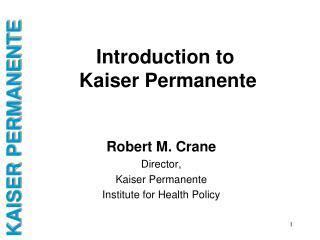Intro
Discover 5 Kaiser Permanente tips for healthy living, including wellness strategies, disease prevention, and mental health advice, to improve overall wellbeing and thrive with personalized healthcare approaches.
Kaiser Permanente is a well-established and respected healthcare organization that has been providing high-quality medical care to its members for over 70 years. With a strong focus on preventive care, innovative treatments, and patient-centered approach, Kaiser Permanente has become a model for healthcare systems around the world. In this article, we will explore five tips from Kaiser Permanente that can help individuals and families improve their health and wellbeing.
The importance of taking proactive steps to maintain good health cannot be overstated. With the rising costs of healthcare and the increasing prevalence of chronic diseases, it is more crucial than ever to prioritize preventive care and make informed decisions about our health. Kaiser Permanente's approach to healthcare emphasizes the importance of education, prevention, and early intervention, and their tips and guidelines can be invaluable in helping us achieve our health goals.
By following Kaiser Permanente's tips and guidelines, individuals can reduce their risk of developing chronic diseases, improve their overall health and wellbeing, and enhance their quality of life. Whether you are a Kaiser Permanente member or not, their expertise and advice can be applied to anyone looking to improve their health. In this article, we will delve into five tips from Kaiser Permanente that can help you achieve your health goals and improve your overall wellbeing.
Introduction to Kaiser Permanente Tips

Benefits of Preventive Care
The benefits of preventive care are numerous and well-documented. By taking proactive steps to maintain good health, individuals can reduce their risk of developing chronic diseases, such as heart disease, diabetes, and certain types of cancer. Preventive care can also help individuals identify health problems early, when they are easier to treat, and improve their overall health and wellbeing.Tip 1: Stay Active and Exercise Regularly

Some examples of moderate-intensity aerobic exercises include:
- Brisk walking
- Swimming
- Cycling
- Dancing
- Gardening
Some examples of vigorous-intensity aerobic exercises include:
- Running
- Jumping rope
- Boxing
- High-intensity interval training (HIIT)
Benefits of Regular Exercise
The benefits of regular exercise are numerous and well-documented. Exercise can help individuals maintain a healthy weight, reduce their risk of chronic diseases, and improve their overall health and wellbeing. Regular exercise can also improve sleep quality, boost mood, and enhance cognitive function.Tip 2: Eat a Healthy and Balanced Diet

Some examples of healthy foods include:
- Fruits: apples, bananas, berries
- Vegetables: broccoli, spinach, bell peppers
- Whole grains: brown rice, quinoa, whole wheat bread
- Lean proteins: chicken, fish, tofu
- Healthy fats: nuts, seeds, avocados
Benefits of a Healthy Diet
The benefits of a healthy diet are numerous and well-documented. A healthy diet can help individuals maintain a healthy weight, reduce their risk of chronic diseases, and improve their overall health and wellbeing. A healthy diet can also improve energy levels, boost mood, and enhance cognitive function.Tip 3: Get Enough Sleep

Some tips for improving sleep quality include:
- Establishing a consistent sleep schedule
- Creating a sleep-conducive environment
- Avoiding caffeine and electronics before bedtime
- Avoiding napping during the day
- Practicing relaxation techniques, such as deep breathing or meditation
Benefits of Getting Enough Sleep
The benefits of getting enough sleep are numerous and well-documented. Sleep can help individuals maintain a healthy weight, reduce their risk of chronic diseases, and improve their overall health and wellbeing. Sleep can also improve cognitive function, boost mood, and enhance physical performance.Tip 4: Manage Stress and Practice Relaxation Techniques

Some examples of relaxation techniques include:
- Deep breathing
- Meditation
- Yoga
- Progressive muscle relaxation
- Mindfulness
Benefits of Managing Stress and Practicing Relaxation Techniques
The benefits of managing stress and practicing relaxation techniques are numerous and well-documented. Relaxation techniques can help individuals reduce their stress levels, improve their mood, and enhance their overall health and wellbeing. Relaxation techniques can also improve sleep quality, boost cognitive function, and enhance physical performance.Tip 5: Stay Connected and Build Strong Relationships

Some examples of ways to stay connected and build strong relationships include:
- Scheduling regular social activities
- Engaging in hobbies or interests with others
- Practicing empathy and active listening
- Cultivating a sense of community and belonging
- Seeking support from friends, family, or a mental health professional
Benefits of Staying Connected and Building Strong Relationships
The benefits of staying connected and building strong relationships are numerous and well-documented. Social connections can help individuals reduce their stress levels, improve their mood, and enhance their overall health and wellbeing. Social connections can also improve cognitive function, boost physical performance, and enhance overall quality of life.What is the best way to stay active and exercise regularly?
+The best way to stay active and exercise regularly is to find activities that you enjoy and that fit your lifestyle. This can include walking, running, swimming, cycling, or any other physical activity that you enjoy. It's also important to incorporate strength-training exercises into your routine, as well as high-intensity interval training (HIIT).
How can I eat a healthy and balanced diet?
+Eating a healthy and balanced diet involves consuming a variety of fruits, vegetables, whole grains, lean proteins, and healthy fats. It's also important to limit your intake of sugary drinks, fast food, and processed snacks, and avoid foods that are high in salt, sugar, and unhealthy fats.
What are some tips for getting enough sleep?
+Some tips for getting enough sleep include establishing a consistent sleep schedule, creating a sleep-conducive environment, avoiding caffeine and electronics before bedtime, and avoiding napping during the day. It's also important to practice relaxation techniques, such as deep breathing or meditation, to help improve sleep quality.
How can I manage stress and practice relaxation techniques?
+Managing stress and practicing relaxation techniques involves prioritizing self-care, setting realistic goals, and seeking support from friends, family, or a mental health professional. It's also important to practice relaxation techniques, such as deep breathing, meditation, or yoga, and engage in activities that bring joy and relaxation.
Why is it important to stay connected and build strong relationships?
+Staying connected and building strong relationships is essential for maintaining good health and reducing the risk of chronic diseases. Social connections can help individuals reduce their stress levels, improve their mood, and enhance their overall health and wellbeing. Social connections can also improve cognitive function, boost physical performance, and enhance overall quality of life.
We hope that these tips from Kaiser Permanente have been helpful in providing you with a better understanding of how to improve your health and wellbeing. Remember to stay active, eat a healthy and balanced diet, get enough sleep, manage stress, and stay connected with others. By following these tips, you can reduce your risk of chronic diseases, improve your overall health and wellbeing, and enhance your quality of life. If you have any questions or comments, please feel free to share them with us. We would love to hear from you and help you on your journey to better health and wellbeing.
